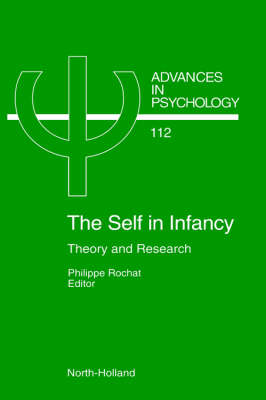
The Self in Infancy
North-Holland (Verlag)
978-0-444-81925-3 (ISBN)
The origins of knowledge about the self is arguably the most fundamental problem of psychology. It is a classic theme that has preoccupied great psychologists, beginning with William James and Freud. On reading current literature, today's developmental psychologists and ethologists are clearly expressing a renewed interest in the topic. Furthermore, recent progress in the study of infant and animal behavior, provides important and genuinely new insights regarding the origins of self-knowledge.This book is a collection of current theoretical views and research on the self in early infancy, prior to self-identification and the well-documented emergence of mirror self-recognition. The focus is on the early sense of self of the young infant. Its aim is to provide an account of recent research substantiating the precursors of self-recognition and self-identification. By concentrating on early infancy, the book provides an updated look at the origins of self-knowledge.
Part I: Theory. 1. Are we automata? (E.J. Gibson). 2. Criteria for an ecological self (U. Neisser). 3. The self as an object of consciousness in infancy (G. Butterworth). 4. Early objectification of the self (P. Rochat). 5. A theory of the role of imitation in the emergence of self (A.N. Meltzoff, M.K. Moore). 6. Aspects of self: From systems to ideas (M. Lewis). 7. Relational narratives of the prelinguistic self (A. Fogel). 8. From direct to reflexive (self-) knowledge: A recursive model (self-produced) actions considered as transformations (P. Mounoud). 9. The unduplicated self (D.J. Povinelli). 10. The self as reference point: Can animals do without it? (E.C. Spada et al.). Part II: Research. Section 1: The Self Revealed in Posture and Action. 11. Self-knowledge of body position: Integration of perceptual and action system information (M.A. Schmuckler). 12. Using a computerized testing system to investigate the preconceptual self in nonhuman primates and humans (M.J. Jorgensen et al.). 13. Move yourself, baby! Perceptuo-motor development from a continuous perspective (A.L.H. Van der Meer, F.R. Van der Weel). 14. Interactions between the vestibular and visual systems in the neonate (F. Jouen, O. Gapenne). 15. Two modes of perceiving the self (B.I. Bertenthal, J.L. Rose). Section 2: Perceptual Origins of the Self. 16. The effect of blindness on the early development of the self (A.E. Bigelow). 17. Intermodal origins of self-perception (L.E. Bahrick). 18. Self-orientation in early infancy: The general role of contingency and the specific case of reaching the mouth (J.S. Watson). 19. The function and determinants of early self-exploration (P. Rochat, R. Morgan). Section 3: Social Origins of the Self. 20. Self/other differentiation in the domain of intimate socio-affective interaction: Some considerations (D.N. Stern). 21. Becoming a self (E.S. Reed). 22. Understanding the self as social agent (M. Tomasello). Author index. Subject index.
| Erscheint lt. Verlag | 30.10.1995 |
|---|---|
| Reihe/Serie | Advances in Psychology |
| Sprache | englisch |
| Gewicht | 910 g |
| Themenwelt | Geisteswissenschaften ► Psychologie ► Entwicklungspsychologie |
| Geisteswissenschaften ► Psychologie ► Psychoanalyse / Tiefenpsychologie | |
| Geisteswissenschaften ► Psychologie ► Verhaltenstherapie | |
| ISBN-10 | 0-444-81925-8 / 0444819258 |
| ISBN-13 | 978-0-444-81925-3 / 9780444819253 |
| Zustand | Neuware |
| Haben Sie eine Frage zum Produkt? |
aus dem Bereich


